Obituaries
A scroll through these entries illustrates the tremendous achievements that physiologists have achieved over many generations. Their valuable contributions to the discipline benefit us all.
This page provides brief notices on the deaths of Society Members as soon as we hear about them. Full PDF obituaries are presented where available.

Gertrude Falk
( 1925 - 2008 )
Gertrude Falk completed a PhD at Rochester on diuresis in the rat and worked as a postdoctoral researcher with Gerrard in Chicago, studying a wide range of muscle types. She came on a Guggenheim Fellowship to the UCL Biophysics Department in 1961 from the University of Washington. An early microelectrode physiologist, she and Paul Fatt first studied muscle before turning their techniques to electrical studies of rod outer segments. Their work on synapses and retinal function generated a theoretical paper in 1974. Other publications followed, including a clutch of Nature papers with Jonathan Ashmore. Further discoveries about retinal physiology came later from her research with Richard Shiells.
Frederick Noel Fastier
1920 - 2021
Distinguished pharmacologist Emeritus Professor Frederick Noel Fastier taught Pharmacology at the University of Otago, New Zealand, from 1949 to 1980, and was the University’s inaugural Professor of Pharmacology. He entered the University as a student in 1937 and graduated with a BSc. He then worked as the chemist for the Department of Medicine and obtained his MSc. His work at the Medical School was at first mainly in the chemical field but he became increasingly involved in pharmacological research. This led to him gaining a Beit Memorial Fellowship to study at the University of Oxford. After completing his doctorate he worked in Edinburgh and New York before returning to teach at the University of Otago in 1949. After Professor Fastier retired, he became a student once again, gaining an MA in Philosophy. He is remembered for his inquiring mind, dedication and commitment to Pharmacology and Pharmacy, and his wonderful generosity. He died in July 2021, aged 101, leaving his estate to the University of Otago.

Paul Fatt
d. 2014
The Society is saddened to hear of the death of Professor Paul Fatt, Emeritus Professor of Biophysics, UCL, who passed away peacefully on 28 September. He was elected as an Honorary Member in 1990.
Marianne Fillenz
d. 2012
Marianne was a neuroscientist who worked in Oxford having trained in Dunedin, New Zealand where she was taught by JC Eccles and was influenced by Karl Popper. Her own work included studies both on transmitter release and on inhibitory synaptic mechanisms in the CNS. She was medical tutor at St Anne’s College and had a remarkable influence on generations of science and medical students.
Tom Forrester
d. 2016
Tom Forrester was a Professor in the Department of Pharmacological and Physiological Sciences at the University of St Louis for over 30 years. Previously, he worked at the University of Glasgow and at University College London. He joined the Society in 1969 and, around that time, gave a number of communications on the release of ATP and its extracellular actions.
Venetia Franglen
( 1941 - 2007 )
Venetia Franglen was a PhD student at University College London in the 1960s, moving later to King’s College, where she was Sub-Dean in the medical faculty for some years. Working with senior physiologists like SE Dicker and Richard Durbin, she studied ion and electrolyte transport in skin (frog, fetal sheep and pig), and ouabain binding in gastric mucosa. She left Kings to become an Open University biology tutor and Curriculum Development facilitator at UCL.
Sheila Gardiner
(1954-2022)
The Society is saddened to hear of the death of Professor Sheila Gardiner, who passed away on 16 March 2022. Gardiner was an outstanding scientist and teacher who gained global acclaim for her success in establishing mechanistic and in vivo physiological models. These informed and shaped in vitro approaches and drove innovation in drug discovery.
Gardiner began her career studying at the School of Agriculture at the University of Nottingham, UK. After graduating with Honours, she went into Medicine completing her PhD at the new Medical School at the university in 1978.
Following a fellowship with the British Heart Foundation, she went onto to be a Lecturer, Reader and then Professor at the University of Nottingham, UK. At the time, Gardiner was the youngest female Professor of Cardiovascular Physiology in the UK.
Alongside her academic pursuits, she taught several programmes at the university, including Medicine, Pharmacy, Nursing, and Life Sciences. As a member of the Research Committee of the British Heart Foundation she also made important contributions to the development of cardiovascular research in the UK.
Ivor Ben Gartside
1941-2020
Ivor Gartside graduated in 1965 with a BSc in Physiology in Andrew Huxley’s Department at University College London. He subsequently began research into the production and mechanisms of prolonged changes in the electrical activity of the cerebral cortex which led to a PhD under the supervision of Olof Lippold. He published frequently in the field relating many of his findings on long-term changes in firing rates to aspects of learning, memory and epilepsy. Following a brief spell at The School of Pharmacy, University of London, in 1974 he took up a lectureship in the Department of Physiology at Charing Cross and Westminster Medical School (CXWMS). He remained there until he took early retirement in 1998 following a merger of the School with Imperial College London. At CXWMS his research interests widened and he collaborated with other members of the Department on a range of issues including the microvasculature, plethysmography and hormonal control of diabetes. Ivor was regarded with great affection, due in part to his readiness and unstinting efforts to help others in their research. That help was invariably as ingenious as it was skilful, particularly when electronics were involved. He spent his retirement enjoying classical music, dabbling with World War Two radios, tracing his ancestry and travelling widely despite the onset of oculo-pharyngeal muscular dystrophy. He is survived by his wife Dr Kate Tress, herself a psychology graduate from UCL, daughters Melissa and Nicola and two grandchildren.
Gerhard Giebisch
1927-2020
The Society notes with regret the death on April 6 at the age of 93 of Honorary Member Professor Gerhard Giebisch. Graduating from the University of Vienna in 1951, he emigrated to the US the following year. After taking a series of appointments of increasing rank he was appointed Professor and Chairman of the Department of Physiology at Yale School of Medicine in 1968, from where he and his numerous associates have had considerable influence in nephrology and other fields. Gerhard is known for his defining research on how the kidney metabolizes potassium and sodium by micropuncture studies. He also, together with Silvio Wiedmann, carried out some of the earliest studies on mammalian cardiac currents. He joined the Society in 1976, becoming an Honorary Member in 1999. Gerhard Giebisch was elected to the US National Academy of Sciences in 1984. Read his obituary in Physiology News here.
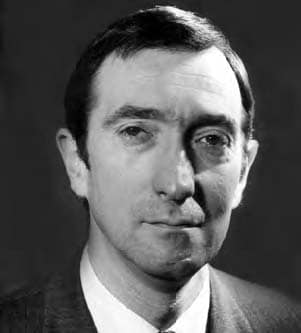
John Spence Gillespie
( 1926 - 2009 )
John Spence Gillespie, a medical graduate of Glasgow University, was later founding Head of the Department of Pharmacology there (1968-88), Professor of Pharmacology (1968-92) and Vice-Principal (1983-91). He served as Chairman of MRC Grants Committees, on the Committees of both the British Pharmacological Society (BPS) and The Physiological Society and, as BPS representative, on the Editorial Board of Pharmacological Reviews and on the Editorial Board for Monographs of The Physiological Society. He was Honorary Secretary of The Physiological Society from 1966 to 1972 and was a Fellow of the Royal Society of Edinburgh. His principal research interest was neurotransmission in the peripheral autonomic nervous system.
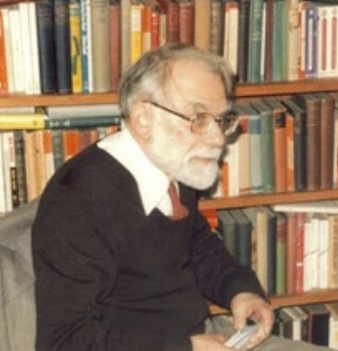
Bernard Ginsborg
d. 2018
The Society regrets to hear of the death of Bernard Ginsborg at the age of 93. Born in London and trained as a physicist, he took a second degree in Physiology on AV Hill’s recommendation. With Paul Fatt at UCL he discovered voltage-gated calcium currents which led on to a long-standing research interest in synaptic neurotransmission and secretion. Moving to Edinburgh, he became the Head of the Department of Pharmacology in 1980, retiring in 1985. A member from 1957, Ginsborg was great supporter of The Society for many years and an outstanding Editor of The Journal of Physiology. He was elected a Fellow of the Royal Society of Edinburgh in 1971.

Margaret Hay Gladden
( 1940 - 2010 )
Margaret Gladden was a medical graduate from London University (1965), gaining her MRCS, LRCP, and DCh shortly after. She took up an MRC junior research fellowship in Geoffrey Kidd’s Liverpool laboratory, was awarded her PhD (1971) and published her first papers on the relationship between structure and function in the innervation of skeletal muscle. She later moved to Glasgow, joining Ian Boyd’s laboratory in the then Institute of Physiology as a research fellow and successively as lecturer (1973), senior lecturer (1983) and reader (1991). She published over 70 papers, mostly in The Journal of Physiology and almost entirely on the subject of muscle spindles.

Ian Glynn
(1928 – 2022)
The Society regrets to hear of the death of Professor Ian Michael Glynn, a British physiologist who is celebrated for his work on the ‘sodium pump’.
Glynn studied medicine at the University of Cambridge, UK, before he became Professor of Physiology. He held the position from 1986–1995, when Glynn was named Professor Emeritus. Glynn was a Fellow at Trinity College, University of Cambridge from 1955.
Glynn studied the movement of ions through cell membranes, finding the link between potassium uptake and sodium outflow in red blood cells, and showed that the membrane is activated by external potassium and internal sodium. This work led to his election to the Royal Society and to Honorary Membership of the American Academy of Arts and Sciences.
He wrote two books ‘An Anatomy of Thought: The Origin and Machinery of the Mind’ (2003) and ‘Elegance in Science: The beauty of simplicity’ (2010).
Constancio Gonzalez
( 1949 - 2015 )
The Society is sorry to hear of the sudden death of Dr Constancio Gonzalez, who was a JP Editor. Constancio had been a Member of The Society since 2012.

John Archibald Browne Gray
( 1918 - 2011 )
John Gray studied medicine at Clare College, Cambridge and UCL Medical School, graduating in 1942. After wartime physiological research with the Pacific Fleet, he worked at the MRC’s National Institute for Medical Research (NIMR) on the sensory transduction of touch and pressure, moving later to the UCL Departmnent of Physiology as Reader. His series of papers in The Journal of Physiology (1950-7) significantly advanced our understanding of the Pacinian corpuscle and mechanoreception. He became a professor (1959), Dean of the UCL Science Faculty (early 1960s) and then ran the MRC (1966-77).After serving as MRC Secretary, he returned to research, studying the physiology of the lateral line in fish with Eric Denton at the Marine Biological Association Labs, Plymouth.

John H. Green
( 1919 - 2000 )
Professor John Green spent most of his academic life in the Department of Physiology, Middlesex Hospital Medical School. A student at Cambridge and the Middlesex Hospital, he conducted cardiovascular and respiratory research, gaining a PhD in 1954 and a Professorial title in 1968. Author of numerous successful books for medical undergraduates, he was closely involved in the creation of teaching videos and held the patent, among others, on a finger cuff for monitoring post-operative blood pressure.
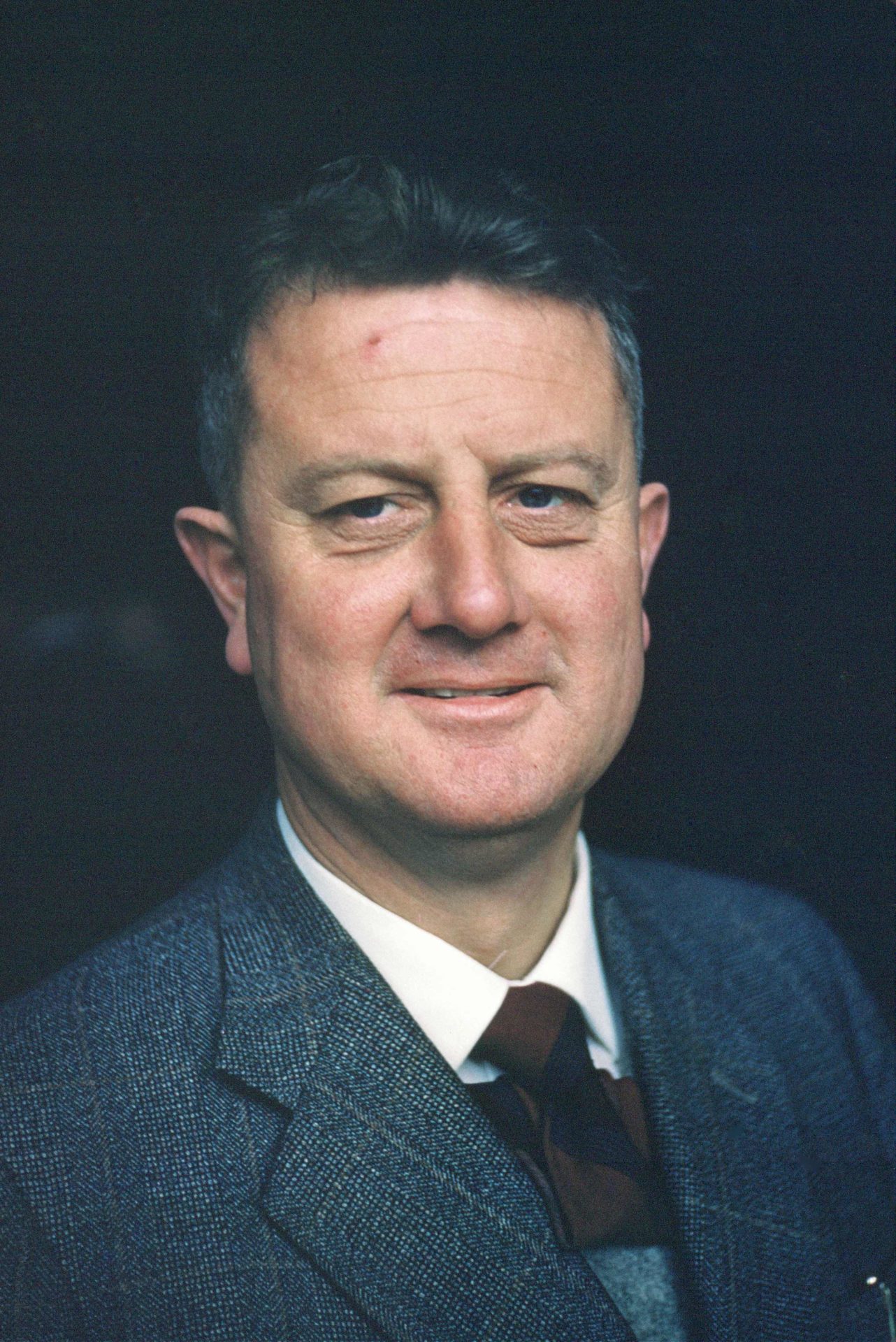
David Greenfield
( 1917 - 2005 )
David Greenfield was Foundation Dean of the Faculty of Medicine and Professor of Physiology at the University of Nottingham between 1966 and 1981. A graduate of St Mary’s Hospital Medical School (1940), he started his physiology career as junior lecturer there – studying limb circulation, foetal haemodynamics and aviation medicine. Aged 31, he was appointed to the Dunville Chair of Physiology at Queen’s University of Belfast. His research there addressed the neural control of peripheral circulation, and many of his junior colleagues went on to prestigious academic careers. In 1963-4, he worked at San Francisco Medical Centre, developing a technique for testing cardiovascular reflex function later used by NASA. In 1966 he was appointed Dean at the newly-founded medical school at Nottingham and re-elected three times. His advice on the establishment of medical schools was sought by Universities around the globe. He was a member of the MRC, the GMC and several editorial boards and was elected an honorary member of The Physiological Society in 1987.
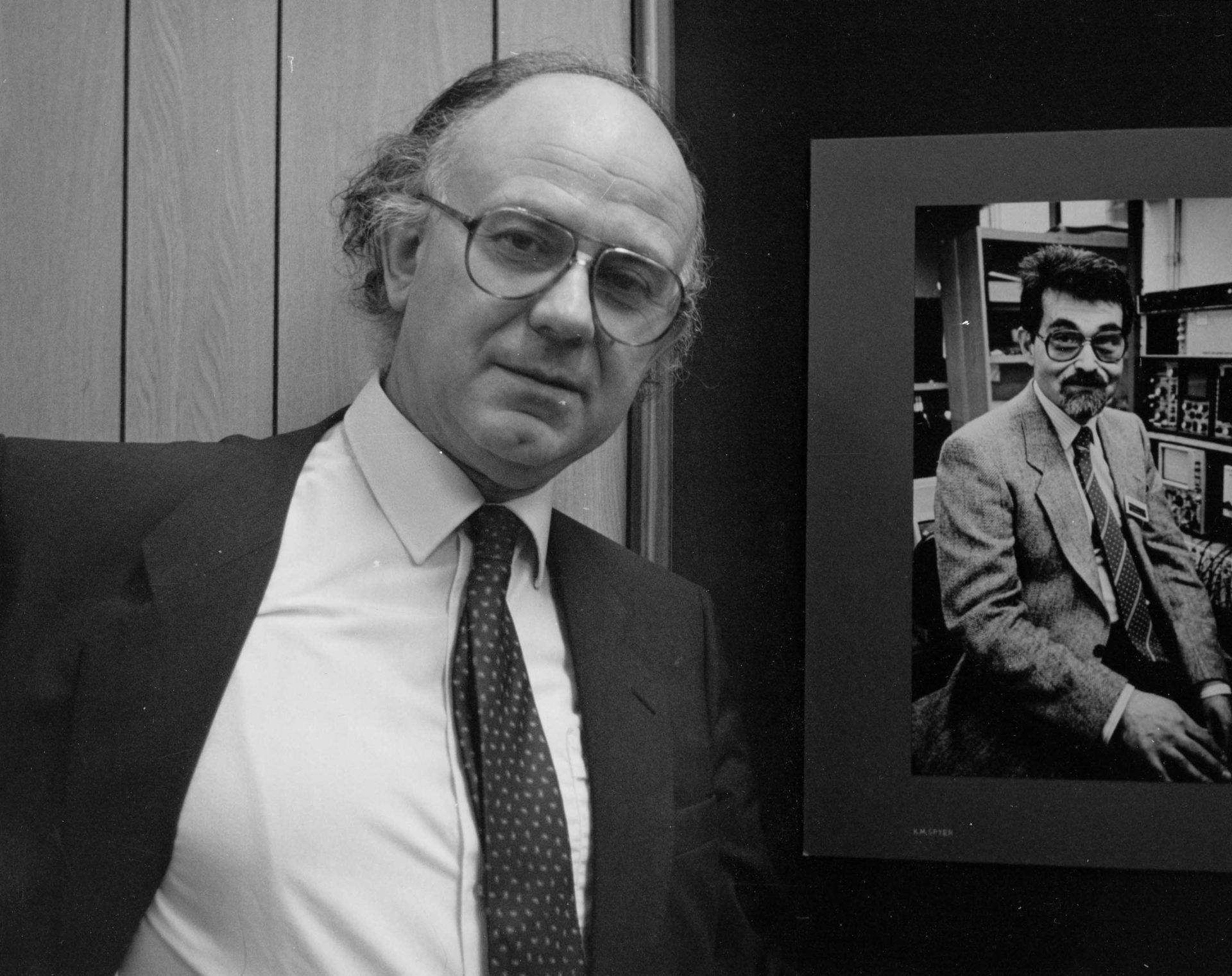
Abraham Guz
d. 2014
The Society is sorry to hear of the death of Abraham Guz; he was 84 and had been a Member since 1966. He was Emeritus Professor at the National Heart and Lung Institute, Imperial College London, and had been Professor of Medicine at the Charing Cross Hospital Medical School 1973–82 and Professor and Head of the Department of Medicine of the joint Charing Cross and Westminster Medical School, University of London until September 1982–94.
James Halliwell
d. 2012
James Halliwell, Emeritus Reader in Physiology at UCL, died on 7 March after a short illness. He was very much a ‘hands-on’ electrophysiologist who made substantial contributions to the physiology of ion channels in the CNS.
In recent years he focused on the roles of dopamine receptors in the mesolimbic system, and on the modulation of glutamatergic transmission in the olfactory tubercle. He was elected a Member in 1985.

A. Murray Harper
( 1933 - 2005 )
Murray Harper was a physiologist of major international and historical significance with a lifelong interest in cerebral blood flow. A Glasgow medical graduate, he led a research team there at the Wellcome Surgical Institute to investigate brain blood flow and cardiopulmonary bypass, ultimately becoming Professor of Surgical Physiology. A champion of interdisciplinary research, basic and clinical, he founded the International Society of Cerebral Blood Flow and Metabolism and was the first editor of its journal.

Geoffrey Wingfield Harris
(1913 - 1971)
Geoffrey Wingfield Harris (1913 – 1971) was an English physiologist and fellow of the Royal Society, considered by many to be the father of neuroendocrinology. He published the ‘Neural Control of the Pituitary Gland’ in 1955 which predicted the subsequently discovered hormone ‘releasing factors’ acting on the hypothalamus. He was a demonstrator in Anatomy and then a lecturer in Physiology at Cambridge before working as a neuroendocrinologist at the Maudsley Hospital in London. Harris went to Oxford University in 1962 as Professor of Anatomy and a Fellow of Hertford College. He was an effective and popular teacher of anatomy, raising its profile, and contributing to the development of the new Physiological Sciences Final Honour School, which brought together for the first time, the five preclinical departments of anatomy, biochemistry, pathology, pharmacology and physiology. His teaching extended to include endocrinology as a special subject. In the same year he was appointed Honorary Director of the Medical Research Council’s Neuroendocrinology Research Unit in Oxford. Here he continued his scientific research: attempting to isolate the luteinizing hormone releasing factor, and studying the effect of gonadal hormones on the sexual differentiation of the brain. He also continued to practise clinical medicine at the Littlemore Hospital, where he was Honorary Consultant, investigating gonadal and pituitary hormones in psychiatric patients. In 1986, The Physiological Society instituted a triennial lecture in memory of the late Professor G. W. Harris.
Geoffrey Wingfield Harris
(1913 - 1971)
Geoffrey Wingfield Harris was an English physiologist and fellow of the Royal Society, considered by many to be the father of neuroendocrinology. He published the ‘Neural Control of the Pituitary Gland’ in 1955 which predicted the subsequently discovered hormone ‘releasing factors’ acting on the hypothalamus. He was a demonstrator in Anatomy and then a lecturer in Physiology at Cambridge before working as a neuroendocrinologist at the Maudsley Hospital in London.
Harris went to Oxford University in 1962 as Professor of Anatomy and a Fellow of Hertford College. He was an effective and popular teacher of anatomy, raising its profile, and contributing to the development of the new Physiological Sciences Final Honour School, which brought together for the first time, the five preclinical departments of anatomy, biochemistry, pathology, pharmacology and physiology. His teaching extended to include endocrinology as a special subject. In the same year he was appointed Honorary Director of the Medical Research Council’s Neuroendocrinology Research Unit in Oxford. Here he continued his scientific research: attempting to isolate the luteinizing hormone releasing factor, and studying the effect of gonadal hormones on the sexual differentiation of the brain. He also continued to practise clinical medicine at the Littlemore Hospital, where he was Honorary Consultant, investigating gonadal and pituitary hormones in psychiatric patients. In 1986, The Physiological Society instituted a triennial lecture in memory of the late Professor G. W. Harris.
Brian Harvey
(1957 - 2024)
Professor Brian Harvey passed away, aged 67, on 22 December 2024. His career began at University College Dublin, Ireland, where he studied physiology and physics and completed a PhD in physiology and biophysics. He then ventured to France in the early 80s to join the French National Science Council (CNRS), and went on to lead the membrane transport research team at the Department of Cell and Molecular Biology at the Atomic Energy Commission (CEA) labs in Villefranche-sur-mer. In 1992, Professor Brian Harvey returned to Ireland. He was appointed Professor of Cell Physiology at University College Cork, where he established and directed the Wellcome Trust Cell Physiology Research Unit and held the senior management post of Vice-president for Research from 1998 to 2002.
From 2002, Professor Brian Harvey worked at Royal College of Surgeons in Ireland (RCSI). As Chair of Molecular Medicine, he established the Molecular Medicine Laboratories at Beaumont Hospital. A couple of years later, he was appointed Director of the RCSI Research Institute, followed by his appointment as Director of Research at RCSI. For 17 years, he was head of the RCSI Department of Molecular Medicine at Beaumont Hospital. During this time, he held an honorary research appointment as a principal investigator at the Center for Scientific Studies, Chile, and was a visiting research professor at the Cordeliers Research Centre, Sorbonne University, Paris.
Brian’s research focused on the physiology and molecular endocrinology of steroid hormone actions in the kidney, intestine, and lung. A major part of his work was investigating female gender-specific actions of oestrogen on epithelial ion transport and cell signalling.
Professor Brian Harvey was an elected member of the European Academy of Sciences and Humanities and the Royal Irish Academy. He received international awards for his work, including the International Laureat Prix Servier from the Servier Institute for his work on rapid responses to steroid hormones, and the Chevalier de l’Ordre National du Merite for his role in developing Ireland-France scientific exchanges. He was awarded an honorary Doctor of Science from Michigan State University, US, for the global impact of his work in promoting research in assistive technologies for disabilities.
Richard Hellon
(d.2022)
The Society is saddened to hear of the death of Richard Hellon, who passed away at the age of 94. He was a physiologist at the National Institute for Medical Research, London, UK. Hellon studied the central nervous system, using electrophysiological techniques to investigate the processing of thermal sensory information in rats, cats, humans and vampire bats and uncovered the underlying mechanisms of somatosensory sensations, including that of pain. He also explored how fever was regulated. He was a member of The Society and published prolifically in The Journal of Physiology from 1950s to early 1980s.
Hellon was also involved with the Brain Function Research Group at University of Witwatersrand, Johannesburg, South Africa, helping them develop their research focus. The group have named their communal room after Hellon.
Robert Henderson
(1957 – 2023)
The Society is saddened to hear of the death of Robert Henderson who died in December 2023 at the age of 66.
Henderson studied at Queen Mary University of London, initially completing a degree in Comparative Physiology before undertaking his PhD in intracellular pH regulation in the liver.
He continued his postdoctoral work at Queen Mary University of London before venturing to the US to further his research on the liver. While working as a Research Associate in Dr Gerhard Giebisch’s laboratory at Yale University, Connecticut he studied membrane ion transport mechanisms in the liver and kidney. He worked on this for four years, before returning to the UK.
He obtained the position of Professor of Macromolecular Pharmacology in the Department of Pharmacology at the University of Cambridge, UK. He dedicated his time on the use of the atomic force microscope to investigate topics in cell biology. This led him to examine the structure of and interactions between membrane proteins, and the interaction of restriction enzymes and anticancer drugs with DNA. From 1993, he was a Fellow at Emmanuel College, University of Cambridge, UK.
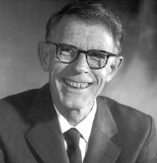
David Keynes Hill
( 1915 - 2002 )
David Hill, son of A V Hill, was a physiologist and biophysicist whose principle interest was muscle contraction. A graduate of Trinity College, Cambridge, he started research on muscle there and was quickly appointed a research fellow. During the Second World War, he worked on crush injuries and ballistics, returning afterwards to his muscle research, first at Cambridge, then (1948–49) as physiologist at the laboratory of the Marine Biological Association in Plymouth, and finally as biophysicist back in Hammersmith (vice-dean, 1970–76). He used innovative techniques to investigate intracellular phenomena and, from 1971, collaborated with RHT Edwards and subsequently with PA Merton.
Harold Hillman
d. 2016
Harold Hillman joined the Society in 1968. He spent most of his career at the University of Surrey. He was known as a critic of modern methods of electron microscopy and for his writing on methods of resuscitation and humane execution techniques. Read more about his life and achievements in obituaries by the Guardian and Telegraph.

Sidney Montagu Hilton
( 1921 - 2011 )
Sidney Montague Hilton was Bowman Professor and Head of the Department of Physiology at the Medical School in Birmingham from 1965 to 1983. He was a distinguished physiologist who made leading contributions to our understanding of brain control of stress-induced cardiovascular changes. He studied medicine at Cambridge and Guy’s Hospital, London. Following National Service at the Institute of Aviation Medicine, he worked in Professor Adrian’s Cambridge laboratory and then under Professor Feldberg at the Medical Research Council (MRC), London. After initial studies on vasodilatory mechanisms in muscle and salivary glands, he turned to the animal defense response – establishing the then revolutionary notion that blood pressure was not controlled by a single brain centre under these circumstances. He developed this work further in Warsaw and England, with Andrzej Zbrożyna of the Nencki Institute of Experimental Biology of the Polish Academy of Sciences. On his appointment to Birmingham, he built a department with an international research reputation and helped to establish the Physiology Department in the new Medical School in Salisbury, Southern Rhodesia (Harare, Zimbabwe). He was elected an Honorary Member of The Physiology Society in 2004.

Sir Alan Hodgkin
( 1914 - 1998 )
Alan Hodgkin was distinguished for his contributions to the understanding of nerve conduction, the excitation of muscle, and phototransduction in the retina. With his colleagues Bernard Katz and Andrew Huxley, he established the ionic basis of the action potential, revolutionising neuroscience and laying the foundations for subsequent work on ion channels. In 1963, at the age of 49, he won the Nobel Prize for Physiology and Medicine with Andrew Huxley and John Eccles. He was a Fellow of the Royal Society at the age of 40, and held its Foulerton Research Chair from 1952 to 1969. In 1970 he succeeded F J W Roughton to the John Humphrey Plummer Chair of Biophysics in the University of Cambridge. He was President of the Royal Society from 1970 to 1975, its Croonian Lecturer in 1957, and winner of its Royal Medal in 1958 and its Copley Medal in 1965. He was Master of Trinity College from 1978 to 1984, President of the Marine Biological Association from 1966 to 1976, and Chancellor of the University of Leicester from 1971 to 1984. He served on the Committee of The Physiological Society from 1949 to 1953 and again as Foreign Secretary from 1961 to 1967. He gave the Annual Review Lecture in the Society’s Centenary year (1976) and became an Honorary Member in 1979. He was made KBE in 1972, and a Member of the Order of Merit in 1973.

Oliver Holmes
( 1933 - 2004 )
Oliver Holmes was a BSc student at University College in the 1950s and subsequently Bayliss- Starling Scholar, studying for his MSc with GL Brown and completing his medical degree and pre-registration posts. His research focus was experimental epilepsy, as MRC Fellow with GD Dawson at the Institute of Psychiatry, then Senior Lecturer at Leicester, Special Wellcome Research Fellow to the Royal Postgraduate Medical School with Professor Sir Gordon Robson and finally, at the Institute of Physiology in Glasgow (from 1975). To enhance this research, he studied computer programming and mathematics and collaborated widely, contributing significantly to basic epileptology. In later life, he turned to work on gastric secretion and served the Physiological Society in several roles. After retiring as Senior Lecturer in 1998, he remained Honorary Research Fellow in the Faculty of Biomedical and Life Sciences, University of Glasgow.
Sir Gabriel Horn
d. 2012
Sir Gabriel Horn, a Member of The Society from 1963, has died aged 85. Gabriel was one of the outstanding neuroscientists of his generation. He was responsible for numerous advances in neuroscience encompassing diverse areas, but especially concerning neural mechanisms of learning and memory. He was a most gifted teacher, delivering lectures appreciated by generations of students. He will be remembered by many students, friends and colleagues for the generous warmth of his personality.

David Horrobin
( 1939 - 2003 )
David Horrobin, appointed Professor of Medical Physiology in Nairobi at the age of 31, had research interests in polyunsaturated fatty acids and schizophrenia. After retiring as Professor of Medicine in Montreal in 1979, he became a controversial pharmaceutical scientist/entrepreneur, founding Scotia Holdings, then Laxdale Ltd.
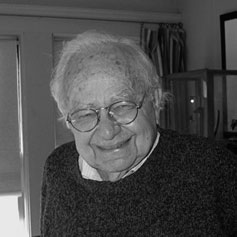
David Hubel
( 1926 - 2013 )
David H. Hubel was the John Franklin Enders University Professor at Harvard Medical School. Having attended McGill University Medical School he qualified as an MD in 1951. His research pioneered the understanding of the cerebral cortex, and knowledge in the fields of colour vision, motion perception and stereoscopic vision. In 1981 he won the Nobel Prize for Physiology or Medicine, shared with Torsten Wiesel and Roger Sperry. Professor Hubel was President of the Society for Neuroscience, and an Honorary Member of both The Physiological Society and the American Neurological Association. He was also a member of the American Academy of Arts and Sciences.

Olga Hudlicka
d. 2014
The Society is sorry to hear of the death on 3 May of Olga Hudlicka, Professor Emeritus at the University of Birmingham. She had been a member of The Society since 1972. She died at the age of 87 and had continued working in the School of Clinical and Experimental Medicine until quite recently. She worked on factors influencing blood flow and capillary growth in normal and ischaemic skeletal and cardiac muscle and gave the Annual Review Prize Lecture in 1990.
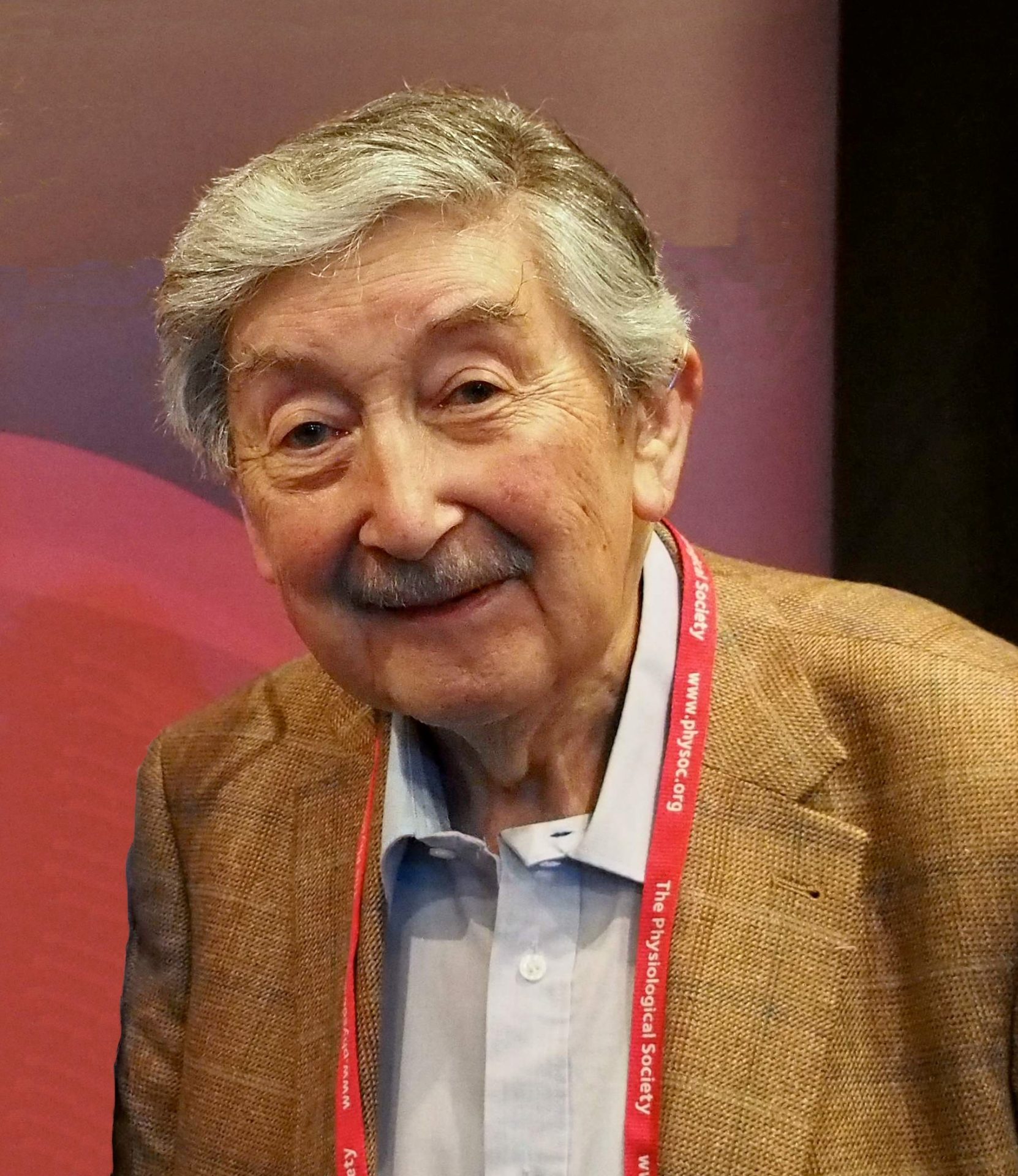
Otto Hutter
( 1924-2020 )
The Society notes with deep regret the death of Honorary Member Otto Hutter. He died on 22 November at his home in Bournemouth. He was 96. Hutter completed a PhD at University College London under Charles (later Sir Charles) Lovatt Evans. He was elected to The Society in 1953 and became an Honorary Member in 1991. He served on the Editorial Board of The Journal of Physiology (1961-6) and on The Society’s Committee (1968-72). The Society’s annual teaching prize that bears his name was founded in his honour in 2009, recognising his work on education, most prominently perhaps that done with the International Union of Physiological Sciences. Hutter’s work (with Wolfgang Trautwein) on the cardiac pacemaker potential, its slowing and speeding, under the influence of vagal or sympathetic stimulation (or the transmitters those nerves release), are true textbook icons. His subsequent studies of the underlying mechanisms furthered his interest in potassium and anion conductance channel properties, notably in skeletal muscle, thereby expanding this field considerably.
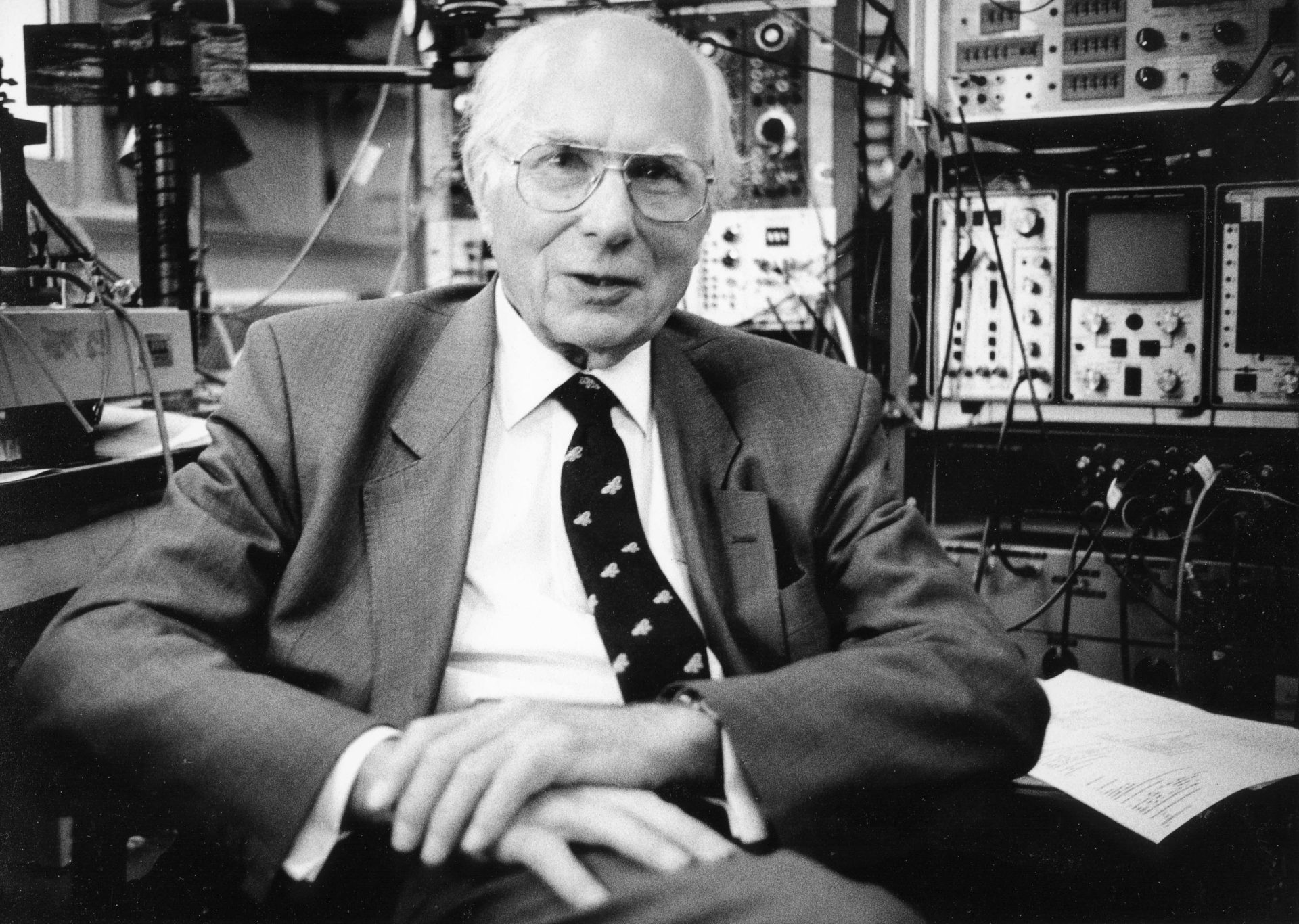
Sir Andrew Huxley
d. 2012
Sir Andrew Huxley OM FRS, one of the greatest physiologists of his generation, has died aged 94. Andrew, together with Alan Hodgkin, determined the basis for nerve cell excitability, applying the technique of the voltage clamp to identify the ionic currents in the squid axon. This pioneering research was carried out at the Marine Biological Association in Plymouth and at the Physiological Laboratory in Cambridge. Published exactly 60 years ago, the work was a fundamental breakthrough and led to the subsequent understanding of voltage-gated ion channels, the understanding of propagating action potentials and provided the framework for studying and analysing ion channel kinetics. With Alan Hodgkin and John Eccles, Andrew shared the 1963 Nobel Prize for Physiology or Medicine for this work. In his subsequent work, carried out largely at UCL, he developed the cross-bridge theory of muscle contraction. Andrew was elected a Fellow of the Royal Society in 1955 and was knighted in 1974 and subsequently appointed to the Order of Merit in 1983. He served as President of the Royal Society from 1980 to 1985.

Ainsley Iggo
d. 2012
Ainsley Iggo was elected a Member in 1956. He was a member of the Editorial Board of The Journal of Physiology from 1962 to 1969, and a member of the Editorial Board of The Quarterly Journal of Experimental Physiology from 1980 to 1983.
Hisako Ikeda-Wolstencroft
(d.2021)
The Society is saddened to hear of the death of Professor Hisako Ikeda-Wolstencroft, who died peacefully at her home in London, UK, on 22 December 2021, aged 93.
Ikeda-Wolstencroft worked at prestigious and world-leading medical centres during her career. From 1968-73, she was Senior Lecturer of Ophthalmology at the Royal College of Surgeons, London, UK. Following this, she went onto St. Thomas Hospital Medical School, London, UK, where she took the post of Senior Lecturer of Physiology from 1973 to 1976, before becoming Professor in Visual Physiology in 1982 and Honorary Consultant from 1990. While at St. Thomas Hospital, she was also Head of Vision Research Unit at the Rayne Institute at King’s College London, UK.
In 1979, Ikeda-Wolstencroft was awarded the Eldridge Green Lectureship from the Royal Society of Medicine, London, UK, for her outstanding contributions to ophthalmology.
Ikeda-Wolstencroft co-authored several books on visual pathways and neurobiology, including ‘Development of Visual Pathways in Mammals’ (1983), ‘Textbook of Clinical Neurophysiology’ (1987) and ‘Neurobiology of the Inner Retina’ (1988). Alongside these works, is her extensive contribution to research, having published over 200 articles in scientific journals, as well as being a member on the Editorial Board for the journal Vision Research.
Ikeda-Wolstencroft’s commitment to her research and the community is further demonstrated by her membership of numerous national and international societies. As well as The Physiological Society, she belonged to the Multiple Sclerosis Society, European Neuroscience Association and The International Society for Eye Research to name but a few.

Fred Imms
d. 2012
Fred Imms was a familiar figure at Society meetings for many years. He was an applied human physiologist who worked at Guys Hospital Medical School and then, following merger, at the GKT School of Medicine.
Colin Ingram
d. 2013
The Society is sorry to hear of the death of Colin Ingram, who was a Member from 1994 to 2008. He was Professor of Psychobiology in the School of Neurology, Neurobiology & Psychiatry from 2000 and Director of the Institute of Neuroscience from 2004 at the University of Newcastle upon Tyne. He elucidated the neural mechanisms controlling the stress response and led research into neuroinformatics and translational neuroscience. He died on 15 December.

Douglas L Ingram
( 1929 - 2006 )
Doug Ingram’s research career spanned four decades during which time he made major contributions to the fields of reproductive physiology, thermal and environmental physiology, and nutritional and developmental physiology. A zoology undergraduate in Birmingham under Peter Medawar, then a PhD student in anatomy with Solly Zuckerman, the major part of Doug’s research achievement occurred between 1961 and 1989 at the ARC Institute of Animal Physiology, Cambridge/BBSRC Babraham Institute, in the Departments of Applied Biology, Cell Biology, and Molecular and Cellular Physiology. He was awarded Individual Merit Promotion to Senior Principal Scientific Officer in 1975, a DSc by the University of Birmingham and elected a Fellow of the Institute of Biology in 1976. Along with numerous publications in learned journals, including The Journal of Physiology, he was joint author of the definitive book on Man and animals in hot environments (1975).
Leslie Iversen
( 1937-2020 )
The Society was saddened to learn of the death of Member Leslie Iversen FRS on 30 July 2020, aged 82. Completing a PhD in Pharmacology at Cambridge, he subsequently worked with Julius Axelrod at NIH and with Stephen Kuffler at Harvard. In 1970 he returned as the first director of the MRC Neurochemical Pharmacology Unit at Cambridge but left in 1983 to head the Merck Sharp & Dohme Research Neuroscience Centre at Harlow. Retiring in 1995, he became, until 2004, Director of the Wolfson Centre of Age-Related Diseases in Oxford. Iversen was at the forefront of research on neurotransmitters and neuropeptides, particularly substance P and cholecystokinins. In his early work he was the first to describe GABA uptake into inhibitory nerve endings in the mammalian brain. Leslie Iversen was a member of The Physiological Society from 1969. He was elected a Fellow of the Royal Society in 1980.
Werner Ulrich Jacobson
( 1906 - 2000 )
Werner Jacobson graduated in Heidelberg in 1930 and moved to England in 1933. Honor Fell, the great cell biologist, recruited him to work at the Strangeways Laboratory in Cambridge. Doctorates in philosophy and of science followed in 1940 and 1960, and two sojourns in Harvard Medical School. In 1980, he was appointed Halley Stewart Professor of Experimental Medicine, first in the University Department of Haematology and later in that of Paediatrics in the Clinical School at Addenbrooke’s Hospital. His research was wide-ranging and he was an early and insistent advocate for the clinical significance of folic acid deficiency.

Sheila Jennett
(1926-2024)
The Society regrets to hear that member Professor Sheila Jennett has died aged 98. Professor Jennett was a distinguished physiologist working on respiratory, cardiovascular physiology and pathophysiology. Her 1989 textbook Human Physiology became a staple for a generation of medical and life-science students.
Early on, Jennett had her mind set on a career in medicine and so switched from an all-girls to an all-boys school to complete the necessary scientific studies. She won a scholarship at her hometown’s medical school at the University of Liverpool, UK. After graduating, she spent 13 years in clinical practice, first as an accomplished General Surgeon before specialising in respiratory medicine.
She worked in seven hospitals between Liverpool, Cardiff, Manchester and Glasgow, always finding herself in the minority as a woman. In the early 60’s, she and her family settled in Glasgow, when she joined the predominantly male physiology department at the University of Glasgow, UK. During this time, she worked on her MD thesis addressing drug-induced respiratory depression, and went onto study hypoxia and hyperoxia for her PhD.
Jennett was later appointed Professor at University of Glasgow. Here, she published her research on respiratory and cardiovascular physiology and pathophysiology in several scientific and medical journals, which she presented around the world including the US and Japan. She co-authored a number of these papers with international neurosurgeons, who had initially planned to work with her husband, the neurosurgeon Bryan Jennett, but were drawn to collaborate with Sheila Jennett to research disorders associated with brain damage. She was a brilliant teacher, who sponsored and mentored colleagues and PhD students nationally and internationally.
In the late 70’s, Professor Jennett was promoted to Head of the Physiology Department. She was recognised as a fair and progressive leader, who went onto establish respiration as a specialist field in the department. She was in demand as Examiner at the Royal Colleges in Glasgow and Kings College London, as well as the Universities of Dublin, Belfast and Dundee. In 1983, she was awarded Honorary Fellow of the Royal College of Physicians and Surgeons in Glasgow.
After retiring in 1991, Professor Jennett worked on two books. She co-edited The Oxford Companion to the Body (2001) with Colin Blakemore and she published Churchill Livingstone Dictionary of Sport and Exercise Science and Medicine in 2008.
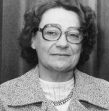
Emilie Leslie Jervis
( 1927 - 2002 )
Emiline Jervis worked in Sheffield University Department of Physiology under the direction of Professor David Smyth as research assistant, lecturer and senior lecturer, investigating intestinal transport mechanisms of hexoses and amino acids. She also administered the dental student physiology course for many years.
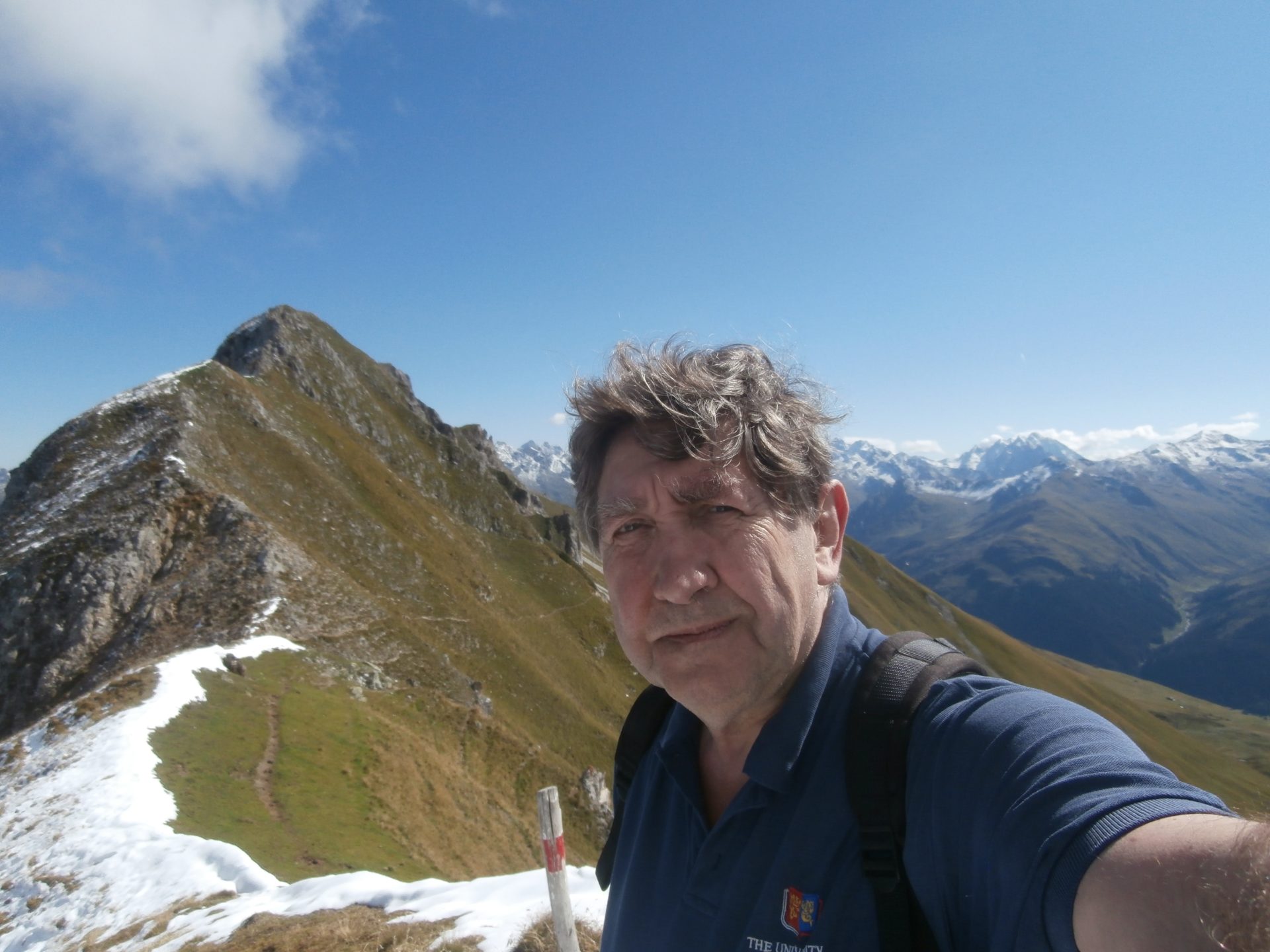
David A Jones
1943 - 2020
The Society is saddened to hear that Member David A Jones died on 20 January after a short illness. Graduating in 1965 from Birmingham University with a degree in Medical Biochemistry, his work has influenced the assessment of muscle fatigue in clinical practice and in exercise physiology. Appointed Senior Lecturer in 1976 at UCH, he taught on a much-appreciated MSc course in Human and Applied Physiology based at Kings College London. In 1993 he became Head of the School of Sport and Exercise Sciences at Birmingham University and, following retirement, moved to Manchester Metropolitan University where he continued an active research career with many international collaborators. The author of numerous research papers, David Jones, was an editor of The Journal of Physiology (1992-1999). Read his obituary in Physiology News here.
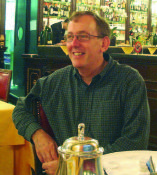
David Jordan
( 1953 - 2007 )
David Jordan studied at the University of Birmingham receiving a BSc in Biological Sciences (1974) and a PhD (1977) for his studies on The termination and excitability of sinus nerve afferents. He became research fellow in the Physiology Department, then physiology lecturer at the Royal Free Hospital School of Medicine, with subsequent promotion to senior lecturer (1988), Reader (1993), Professor (1999) and Head of Department. He collaborated over several years with his PhD supervisor, Mike Spyer, and subsequently with Andrew Ramage, funded by the Wellcome Trust and British Heart Foundation, The papers that flowed from their partnership have significantly increased our understanding of the role of 5-hydroxytryptamine receptors in the central nervous control of cardiovascular function. Author of several review articles and book chapters, he had many editorial, educational and administrative roles. He served as an undergraduate and higher degree external examiner both within the UK and overseas.
Notices of death 2025
Professor Evelyne Sernagor (March 2025)
Notices of death 2024
Brian Harvey (December 2024)
Roger Thomas (December 2024)
Christopher Charles Michel (July 2024)
Thomas Bolton (May 2024)
Robert Martin (March 2024)
Sheila Jennett (March 2024)
Tom Sears (February 2024)
Notices of death 2023
Robert Henderson (December 2023)
David Brown (October 2023)
Ronald Whittam (August 2023)
Cecil Kidd (July 2023)
David Begley (July 2023)
John G Nicholls (July 2023)
Jeanette Erdmann (July 2023)
Andrew Packard (June 2023)
KW Ranatunga (May 2023)
Gavin Pinniger (April 2023)
Ann Margaret Alderson (April 2023)
Ann Silver (March 2023)
Roger Ramsbottom (February 2023)
Kenneth Page (January 2023)
Notices of death 2022
Philippe Ascher (October 2022)
Tony Macknight (July 2022)
Ian Glynn (July 2022)
Sir Colin Blakemore (June 2022)
Sheila Gardiner(March 2022)
Richard Hellon (February 2022)
Harald Reuter (February 2022)
Kevin Tipton (January 2022)
Anthony Ridge (January 2022)
Notices of death 2021
Malcolm Roberts (December 2021)
Piers C.G. Nye (December 2021)
Derek Bergel (December 2021)
Mark Dunne (December 2021)
K A Paul Edman (December 2021)
Hisako Ikeda-Wolstencroft (December 2021)
David Ogden (December 2021)
Lars Ole Simonsen (November 2021)
John Morrison (September 2021)
Jere Mitchell (July 2021)
Frederick Noel Fastier (July 2021)
Edward Carmeliet (April 2021)
Notices of death 2020
Frank-Bowser Riley (December 2020)
Otto Hutter (November 2020)
Jan Lännergren (October 2020)
Leslie Iversen (July 2020)
Bernard T. Donovan (July 2020)
Edward M Winter (July 2020)
Horace B Barlow (July 2020)
Ronan O’Regan (July 2020)
Henry Michael Snow (June 2020).
Geoffrey Burnstock (June 2020)
Alan Williams (May 2020)
Gerhard Giebisch (April 2020)
Nicholas Standen (April 2020)
Peter B C Matthews (March 2020)
Michael Berridge (February 2020)
John Bligh (January 2020)
David A Johns (January 2020)
Notices of death 2019
Paul M Vanhoutte (August 2019)
Thomas Copland Muir (August 2019)
Sir Stanley Peart (March 2019)
To notify us of the death of a Member please email membership@physoc.org.
